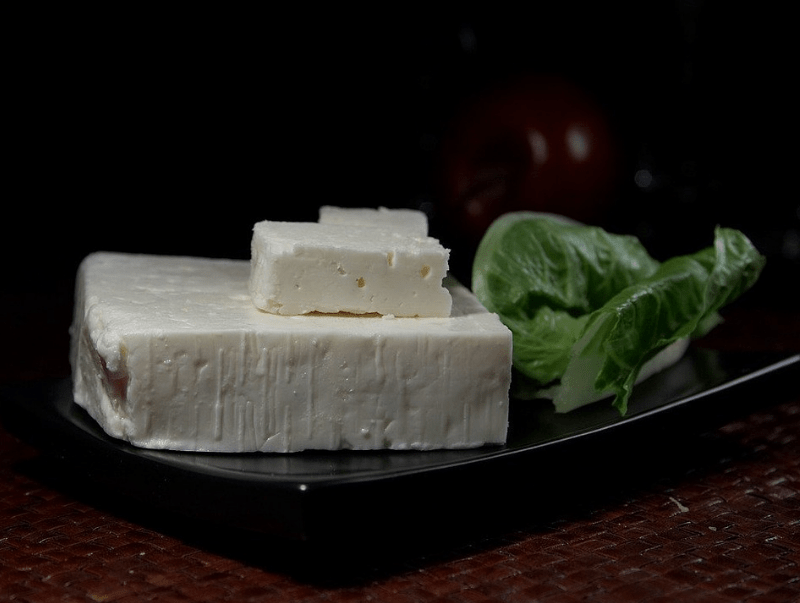Feta is a soft cheese that is made using whole sheep’s milk or a combination of goat’s milk and sheep’s milk. In Greece, this type of cheese is cured in a salty brine. Feta is also known as pickled cheese. Its flavor becomes saltier and sharper as it age, and it also becomes firmer. This cheese is creamy white in color, and it has small holes and a crumbly texture. Most of the time, it comes in square cakes that do not have any rind. But there are also others that are pre-crumbled and packaged in airtight containers without brine and added seasonings. Feta cheese is also more expensive compared to other cheeses, but it is worth it.
While feta cheese is rich in calcium and protein, it also contains high amounts of saturated fats and sodium. Even if it is lower in fat than most cheeses, it should still be eaten in moderation. If you want to know if feta cheese is good for you or not, you’re in the right place. Today, we are giving you information about the positive and negative effects of eating feta cheese.
Potential Health Benefits of Feta Cheese
As mentioned earlier, feta cheese is a good source of essential vitamins and minerals, but it is also high in sodium. But when you eat it in moderation, here are some of the potential health benefits of feta cheese:
Feta cheese is good for bone health.
In Western diets, cheese is one of the primary sources of calcium. Feta cheese is rich in calcium and as well as protein, and phosphorus, which can all promote bone health. It’s because feta cheese is made from sheep and goat milk, which contain more calcium and phosphorus compared to cow’s milk. Therefore, when you incorporate feta cheese into your diet, it could help in maintaining healthy teeth and bones. In addition to that, it can also have positive effects on bone density and can help prevent osteoporosis.
Feta cheese can aid in weight management.
Feta cheese has conjugated linoleic acid or CLA, which is a fatty acid that, based on studies, can help reduce body fat. In addition to that, these studies show that it can also help improve body composition in the long term. Aside from that, it might also help prevent diabetes and cancer.
Feta cheese is beneficial for your gut.
Since feta cheese is a fermented food, it contains probiotics. These are strains of good bacteria that promote a healthy gut and support immune system function. In addition, they seem to increase the production of compounds that inhibit the inflammatory response, providing anti-inflammatory benefits.
Feta cheese can help lower the risk of diabetes.
According to researchers, the protein and calcium found in feta cheese can help control the body’s blood sugar levels, which can reduce the risk of developing diabetes and help manage existing blood sugar-related conditions.
Potential Health Risks of Feta Cheese
Even though feta cheese is a good source of nutrients, due to how it’s processed and the types of milk used, it also has some disadvantages. Here are some of them:
Feta cheese has high amounts of sodium.
As mentioned earlier, feta cheese contains lots of sodium because, during the cheese-making process, salt is added to the curd. Also, when it is stored, the cheese block is submerged in a brine up to 7% salt. With this, the finished product is high in sodium. In fact, a 1-ounce or 28-gram serving of feta cheese has 312 mg of sodium.
Excessive sodium can contribute to high blood pressure, which can also lead to other issues that heart disease, kidney problems, and stroke. Therefore, if you are sensitive to salt, it is better to rinse the cheese with water first before eating it.
Feta cheese contains lactose.
Feta cheese is considered unripened cheese, and it is higher in lactose compared to aged cheeses. Therefore, it is not advisable to be eaten by those who are allergic or intolerant to lactose.
Feta cheese should not be consumed by pregnant women.
Feta cheese is unpasteurized and should be avoided by pregnant women. It’s because it has the potential to be contaminated by the bacteria called listeria monocytogenes, which is found in water and soil that can contaminate crops and animals. Cheeses that are made with unpasteurized milk have a higher risk of carrying this bacteria due to higher moisture content. Therefore, it should be avoided by pregnant women.
Feta cheese may have negative effects on certain medications.
Feta cheese has tyramine, which is a naturally occurring substance found in aged or fermented foods. This substance is associated with blood-pressure spikes, severe headaches, and heart palpitations in people taking medicines that are monoamine oxidase inhibitors or MAOI. Some examples of these medicines are those prescribed for Parkinson’s disease and depression.
Conclusion
Feta cheese is indeed one of the delicious cheeses out there. It may have a few drawbacks, side-effects, and health risks, but as long as you eat it in moderation, it should not be very harmful to your health. Just remember that when buying cheese, especially in supermarkets, make sure that you always check the label and the ingredients that it contains. This way, you can ensure that its contents are not going to be harmful to your health.


